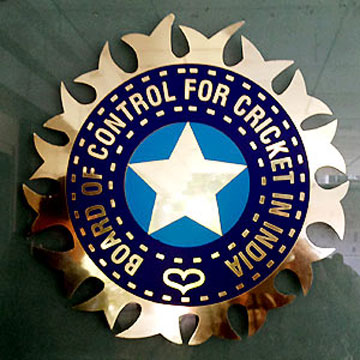 New Delhi:
New Delhi: A Supreme Court bench, headed by outgoing Chief Justice Tirath Singh Thakur, on Monday finally put its stamp on the Justic Rajendra Mal Lodha Committee report by ordering the removal of Anurag Thakur as president of the Indian cricket board and Ajay Shirkey as its secretary.
It took a year for the apex court to bring an end to a long, bitter argument over a new template for transparency, accountability and good governance to what is considered as the best run and financially sound sports orgnaisation.
The verdict is on expected lines, except that it could have had a relook at the one-state-one-vote and the tenure of office, if certainly not the age cap of 70, and somewhat modified the order.
Curiously, though the verdict has been delayed till a day before Thakur is to lay down his office. The only logical explanation could be to give the board to exhaust all its avenues to argue the historic case.
The board kept arguing that there was nothing wrong with its administration, citing how well it has spent its money in creating excellent infrastructure throughout the country to pave the way for India to become number one team in the world.
The court was obviously not impressed as the independent auditors appointed by the board itself found leakages and siphoning of funds by some of its state units without submitting certificates of utility.
The court has, however, did not accept the names suggested by the Lodha Committee to run the affairs of the board board in the interim after sacking the top officials and instead requested legal luminaries Fali Nariman and Gopal Subramaniam to help it in nominating persons of impeccable integrity for the panel of administrators.
The court has not left the matter to rest by removing Thakur, it has also initiated contempt proceedings against sacked board chief. He has to respond as to why he should not be held liable for obstructing the implementation of the court's directions on reforms.
In his initial reaction to the verdict, Anurag Thakur said for him it is not a personal battle, the fight is for the autonomy of the sports body.
Even as he stated that he respects the court judgment, he took the cue from former board president Sharad Pawar, saying if the apex court feels that board can do better under retired judges, I wish them all the best.
Pawar told the captains of the industry at the FICCI annual General Meeting a couple of weeks ago that the Supreme Court, which has so far been guiding how to run the country, will now decide how to organise cricket! He did not want to elaborate his remark for what he said "fear of facing contempt of court proceedings".
As the case dragged on for a year, some of the state associations were putting the succession order in place their kin to take over. But that may not allow them to run either the board or their state units with remote control all that easily as the CEOs will now on be calling the shots.
Rats have already started fleeing. A couple of them did in the last two months when the Lodha Committee exposed the misdeeds of these state units. The first state to announce that it will fall in line soon after the judgment is Andhra Pradesh, whose secretary Gokaraju Gangaraju, Member of Parliament from Andhra, belonging to Bharatiya Janata Party like Anurag Thakur, the young MP from Hamirpur in Himachal Pradesh.
Like a good politician Gangaraju defended the delay in seeing the virtues in the Lodha Committee recommendations and quipped: Everyone was together but now that the verdict is out there is no question of defiance!
As Gangaraju added that the board officials have spent long enough to know how to run the administration, implying the politicians in the board will go about their work.
The same politicians can create chaos, more so in the states, but as the Lodha Panel have made sure there are enough safety valves to implement the July 18 apex court order. They could disregard timelines up to a point, but will realize now that they cannot disobey any longer as there is no escape route.
As Justice Lodha said his committee's report could as well be a model standing order for other sports orgnaisations in the country, ending the "monopoly of a few people in controlling them for years and decades".
The time is ripe to enforce the excellent template on the Indian Olympic Association (IOA) when nothing seems to be going right for it.
Neither the IOA, along with its affiliated state units, nor the national federations will easily accept it, but they can be compelled to do so like the apex court did in the case of the cricket board.
Indian sport is in the process of a great churning and something good will come out of it.
 New Delhi: A Supreme Court bench, headed by outgoing Chief Justice Tirath Singh Thakur, on Monday finally put its stamp on the Justic Rajendra Mal Lodha Committee report by ordering the removal of Anurag Thakur as president of the Indian cricket board and Ajay Shirkey as its secretary.
New Delhi: A Supreme Court bench, headed by outgoing Chief Justice Tirath Singh Thakur, on Monday finally put its stamp on the Justic Rajendra Mal Lodha Committee report by ordering the removal of Anurag Thakur as president of the Indian cricket board and Ajay Shirkey as its secretary.